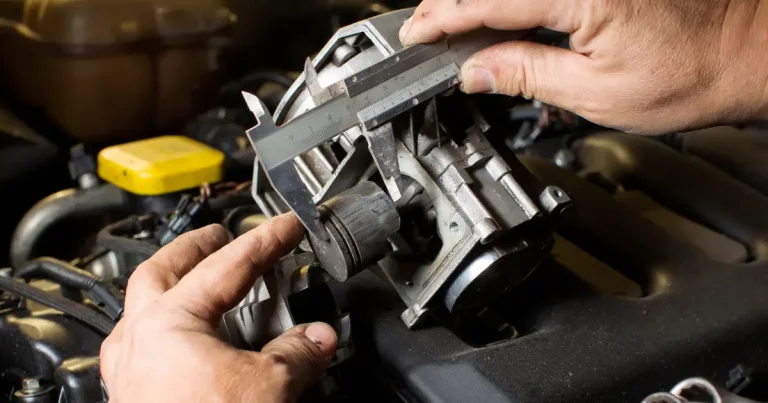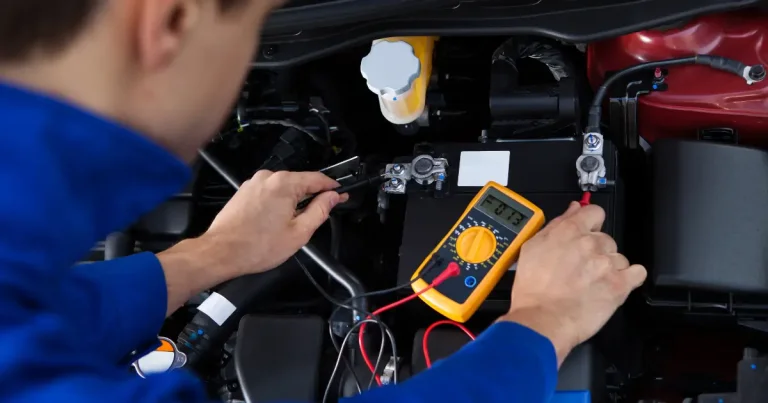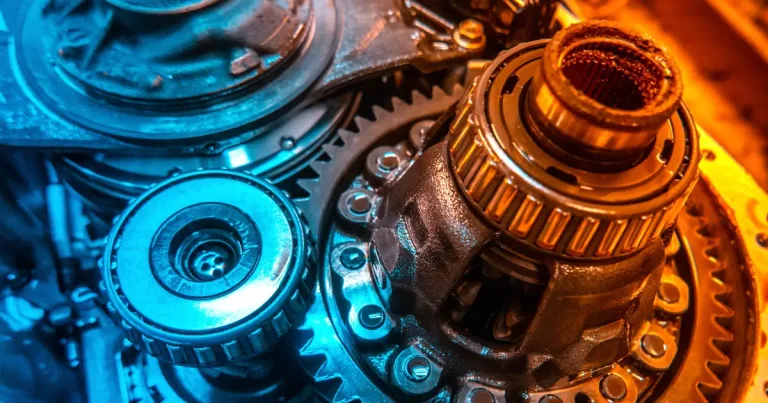Engines can be improved by enhancing fuel efficiency and reducing emissions. Technological advancements and meticulous maintenance are key.
How Can Engines Be Improved?
Modern engines represent marvels of engineering, yet there’s always room for improvement to meet growing demands for performance and environmental sustainability. Engineers strive to optimize the intricate dance of fuel, air, and spark that powers our vehicles. Through innovative design, the use of high-quality materials, and the integration of computer algorithms, engines become more efficient, powerful, and cleaner running.
Regular, expert maintenance further ensures that engines perform at their peak and last longer. The pursuit of perfection in engine technology is a balancing act between power, efficiency, and the environmental footprint, with continuous research driving the momentum for progress. As consumers become more environmentally conscious and regulations stricter, the improvements in engine technology will remain a critical focus for manufacturers.
The Quest For Better Engines
The Quest for Better Engines has been at the heart of human innovation for centuries. Inventors and engineers constantly seek ways to make engines more powerful, efficient, and environmentally friendly. This relentless pursuit has led to significant advancements that continue to shape our world.
Historical Milestones In Engine Design
- The Steam Engine: Kickstarted the industrial revolution.
- Internal Combustion: Revolutionized transportation.
- Jet Engines: Made global travel routine.
- Hybrid Technology: Blended electric and fossil fuels.
Current Challenges In Improving Engine Efficiency
Today’s engineers face multiple hurdles as they strive to enhance engine performance:
| Challenge | Impact on Efficiency |
|---|---|
| Emissions Regulations | Stricter standards require cleaner engines |
| Fuel Economy | Demands for lower fuel consumption increase |
| Material Limits | Need for durable, lightweight materials |
How Can Engines Be Improved?

Credit: henrysautodetail.com
Fuel Efficiency Advances
Improving fuel efficiency is crucial for reducing operating costs and minimizing environmental impact. Innovators are constantly seeking ways to enhance engine performance. This encompasses advancements in fuel consumption reduction and pioneering methods in fuel type and delivery systems. Let’s explore these cutting-edge developments that are reshaping the future of engine technology.
Techniques For Reducing Fuel Consumption
Effective strategies can lead to significant fuel savings. Consider these key techniques:
- Aerodynamic design: Reduces wind resistance, enhancing efficiency.
- Engine downsizing: Smaller engines consume less fuel yet maintain performance.
- Advanced transmission systems: Optimize gear ratios, improving mileage.
- Variable valve timing: Adjusts engine cycles for peak efficiency.
- Start-stop technology: Shuts off engine at idle, cutting unnecessary fuel use.
Innovations In Fuel Type And Delivery
Pioneering fuel types and delivery systems are revolutionizing engine efficiency. Notable innovations include:
| Fuel Type/Delivery Innovation | Benefits |
|---|---|
| Direct fuel injection | Boosts power and curbs waste. |
| Hybrid systems | Combine electric power with fuel, reducing emissions. |
| Alternative fuels | Lower carbon footprint as compared to traditional fuels. |
| Adaptive cruise control | Regulates speed and fuel input for optimal efficiency. |
With these remarkable strides in fuel efficiency, the future looks promising for both consumers and the planet. By adopting these fuel-saving breakthroughs, engines will become not only more economical, but also more eco-friendly.
How Can Engines Be Improved?
Emission Reduction Strategies
As the world seeks cleaner air, emission reduction strategies become paramount. Engines play a key role. Let’s discuss how engines can undergo transformation for a greener future.
Developments In Emission Control Technology
The race for cleaner engines leads to cutting-edge emission control technology. Innovations come to life as scientists work tirelessly.
- Catalytic converters turn harmful gases into less damaging ones.
- Particle filters catch soot and other small pollutants.
- Advanced fuel formulations burn cleaner, producing less smoke.
- Hybrid systems combine electric and fuel power to cut emissions.
Government Regulations And Their Impact
Government regulations shape the auto industry. They push for change. Manufacturers must adapt or fall behind. Cleaner air is the goal.
| Region | Regulation | Impact |
|---|---|---|
| Europe | Euro 6 Standards | Strict limits on NOx emissions |
| USA | CAFE Standards | Improved fuel efficiency |
| Asia | BS-VI Standards | Reduced sulfur content in fuel |
Fines and incentives keep manufacturers in line. Businesses innovate or pay the price. Consumers reap the benefits of a cleaner environment.
Enhancing Engine Performance
Modifying engines for better performance unlocks power and efficiency. Smart tweaks and tech upgrades can make engines run smoother, faster, and cleaner. We’ll dive into two key strategies: turbocharging and supercharging, and the role of advanced engine control systems in maximizing engine potential.
Turbocharging And Supercharging
Turbochargers and superchargers are game-changers for engine power.
Both force more air into the combustion chamber.
More air means more fuel can burn, leading to more power.
- Turbocharging: Uses exhaust gases to spin a turbine and compress incoming air.
- Supercharging: Driven directly by the engine, it compresses air without exhaust gases.
Turbocharging offers extra power without a big size increase.
Supercharging gives you fast throttle response.
| Turbocharging | Supercharging |
|---|---|
| Improved fuel efficiency | Immediate power boost |
| Better for high-speed performance | Great for quick acceleration |
Advances In Engine Control Systems
Engine control systems are the brain of the engine. They manage fuel, air intake, and ignition timing for peak performance.
Modern systems use sensors and computers to make real-time adjustments.
- Fuel injection systems regulate the fuel flow precisely.
- Variable valve timing adjusts the engine’s air intake.
- Ignition control ensures optimal spark timing for fuel burn.
Together, these control systems keep engines running at top efficiency.
Advanced software can even adapt to driving habits for better performance.
Materials And Manufacturing Innovations
Engines are the heartbeat of the machinery world, and innovations in materials and manufacturing are crucial for superior performance. In our quest for more powerful, efficient, and durable engines, the advancements in these areas offer tantalizing possibilities. Let’s explore some cutting-edge developments that are set to revolutionize engine technology.
The Role Of Lightweight Materials
Lightweight materials are transforming engine design. They provide numerous benefits:
- Reduced engine weight means better fuel efficiency.
- Lower mass leads to improved performance.
- They enable engines to run cooler and last longer.
Materials like aluminum, magnesium, and titanium are becoming staples in modern engine blocks and components. Composite materials also make headway, offering strength without the weight penalty.
Precision Engineering Techniques
Precision engineering enhances engine reliability and efficiency. State-of-the-art techniques include:
| Technique | Benefit |
|---|---|
| Computer-Aided Design (CAD) | Creates detailed engine components for optimal fit and performance. |
| 3D Printing | Allows for rapid prototyping and complex shapes not possible before. |
| Laser Scanning | Ensures components meet strict tolerance levels for maximum efficiency. |
These techniques lead to engines that are not only powerful but also precise and reliable. With better tolerances and surface finishes, parts fit together seamlessly, reducing wear and extending the engine’s life.

How Can Engines Be Improved?
Credit: towardsdatascience.com
Hybrid And Electric Powertrains
The future of automotive propulsion is rapidly changing with hybrid and electric powertrains leading the charge. Incorporating advanced technology, these powertrains are pivotal to enhancing engine efficiency, performance, and reducing emissions. They represent a significant leap forward in automotive engineering.
The Shift To Electrification
The auto industry is embracing electric power in full force. With electric vehicles (EVs) becoming more prevalent, traditional gas-powered engines are giving way to cleaner, more efficient electric motors. Buyers now have a wide selection of EVs that cater to different needs and preferences.
The transition to electrification comes with several benefits:
- Lower operating costs due to fewer moving parts
- Reduced greenhouse gas emissions, promoting a cleaner environment
- High torque at low speeds, delivering instant acceleration
However, this shift also poses challenges such as the need for more charging infrastructure and ensuring adequate electric range for long travels.
Benefits And Challenges Of Hybrid Systems
Hybrid systems merge the best of both worlds: the efficiency of electric motors and the range of gasoline engines. Drivers can enjoy extended range and convenient refueling while benefiting from electric propulsion in city driving.
| Benefits | Challenges |
|---|---|
|
|
Adopting hybrid powertrains requires balancing these aspects to meet consumer expectations and regulatory standards.
Alternative Fuel Possibilities
Our quest for cleaner, sustainable energy has led to innovative fuel sources. Engines today face a turning point. Alternative fuels offer a glimpse into a world less reliant on traditional gasoline. Let’s explore the frontiers that promise to enhance engine efficiency and reduce emissions.
The Potential Of Biofuels
Biofuels derive from living matter. They present a renewable solution, often made from plant or animal waste. Their production recycles carbon dioxide, making them a carbon-neutral option. This fuel could greatly cut down our carbon footprint.
- Reduced emissions: Biofuels can release fewer pollutants.
- Energy security: Local production boosts energy independence.
- Biodegradability: Biofuels break down more easily than fossil fuels.
Exploring Hydrogen As A Fuel Source
Hydrogen, the simplest and most abundant element, could revolutionize energy. Cars powered by hydrogen fuel cells emit only water vapor as a byproduct. This clean energy source could be key in achieving sustainability.
| Advantage | Details |
|---|---|
| Zero emissions | The chemical reaction in hydrogen fuel cells produces no harmful emissions. |
| Abundant resources | Hydrogen is plentiful in the environment procured from water, organic matter, or methane. |
| High energy efficiency | Hydrogen fuel cells are typically more efficient than combustion engines. |

How Can Engines Be Improved?
Credit: simtechdev.com
The Future Of Engine Technologies
As we gaze into the horizon of innovation, engine technologies stand poised for transformative changes. Groundbreaking advancements beckon a new epoch for how engines power our lives. Let’s explore what lies ahead for these mechanical marvels of human ingenuity.
Predictions For Next-generation Engines
Next-generation engines will redefine boundaries of efficiency and performance. Futurists envision a world where these engines are not only just powerful but also sympathetic to our planet.
- Hybrid models will blend fuel and electric power.
- Energy recovery systems will harness lost power.
- Engines will be lighter, yet stronger.
- A shift to alternative fuels will cut emissions.
The Role Of Artificial Intelligence And Machine Learning
Artificial Intelligence (AI) and Machine Learning (ML) enter the automotive realm as catalysts of progress. They promise to revolutionize engine diagnostics, optimization, and maintenance.
| AI Role | Impact |
|---|---|
| Performance Tuning | AI algorithms will tailor engine settings on the fly for optimal performance. |
| Fault Prediction | ML will predict and prevent failures before they occur, ensuring reliability. |
| Efficiency Optimization | AI will continuously adjust engine parameters for maximum fuel efficiency. |
AI integration into engine systems is not just a possibility; it’s an impending reality set to redefine the benchmarks of automotive excellence.
Conclusion
Enhancing engines is a never-ending journey, fueled by innovation and efficiency. Regular maintenance and smart technology integration stand as key factors. Embracing sustainable fuels and materials will define future progress. Let’s engineer a revolution in power and performance, driving towards a more robust, cleaner tomorrow.




